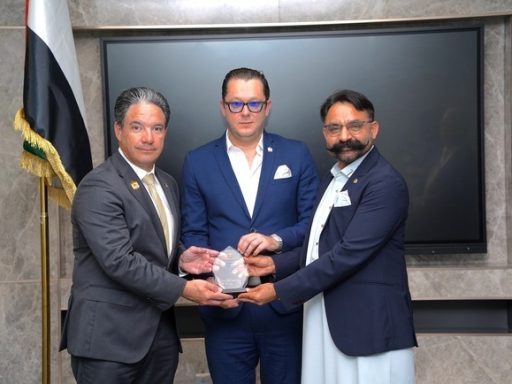Jack Mason, the CEO of Inc & Co, stands as a significant figure in leadership today. Through his vision and innovative ideas, he has transformed Inc & Co into a thriving enterprise, becoming a key voice in modern business leadership. His journey from humble beginnings to leading a successful company offers valuable insights into successful leadership in the current era.
In the world of business, leadership has seen dramatic changes over recent years. Traditional methods have given way to more collaborative and adaptive strategies. Jack Mason exemplifies how a forward-thinking approach can lead to sustainable growth and success. Known for his strategic vision and people-focused methods, Mason’s ability to navigate challenges and make impactful decisions has set him apart as a leader.
Mason’s perspective on leadership places a strong emphasis on innovation and collaboration. He understands the importance of creating an environment where new ideas can flourish, and employees are motivated. This modern approach to leadership underpins the remarkable growth of Inc & Co, demonstrating how essential these qualities are in achieving business success today.
Developing Strategic Vision and Fostering Innovation
Leadership in modern business focuses on creating strategic plans and encouraging new ideas. Successful leaders like Jack Mason emphasise innovative strategies and adaptability to market trends. Their vision includes embracing technology, promoting constant learning, and improving business growth.
Cultivating a Visionary Leadership Style
Visionary leaders like Jack Mason inspire growth by setting clear goals and developing plans that anticipate future challenges. They focus on creating a resilient organisation that can adapt to market changes.
Such leaders foster an environment where staff feel motivated to contribute their ideas. Cultivating this style involves understanding company strengths, recognising opportunities for improvement, and promoting a shared vision across the team. A strong leadership style boosts employee engagement and drives the company forward.
Embracing Technological Advances and AI
Incorporating technology and AI into business strategies remains crucial. Jack Mason’s emphasis on innovation includes leveraging these tools to enhance decision-making processes and operational efficiency.
By staying updated with the latest technological advancements, companies can streamline processes and improve product offerings. AI, in particular, offers significant benefits by analysing vast data sets, providing insights that drive strategic decisions and better customer experiences. Technology enables businesses not just to keep pace with competitors but to lead the industry.
Fostering Continuous Learning for Business Growth
Encouraging a culture of continuous learning is essential for maintaining a competitive edge. Companies led by committed leaders invest in ongoing training and development programmes to enhance employee skills and knowledge.
Providing staff with opportunities to learn ensures adaptability in facing market challenges. It promotes an innovative spirit, supporting new ideas and creative problem-solving. A focus on learning leads to business growth by developing capable teams ready to pursue new business avenues and address evolving market demands effectively.
Navigating Market Dynamics with Strategic Insight
Understanding market trends and dynamics is pivotal for strategic planning. Jack Mason emphasises the need for businesses to remain vigilant and adaptable to changing market environments.
Effective navigation requires analysing consumer behaviour and industry shifts to align business operations accordingly. Leaders utilise strategic insights to anticipate changes, minimise risks, and capitalise on emerging opportunities. Staying informed allows businesses to make informed decisions that foster resilience and sustainable growth in a rapidly changing marketplace.
Enhancing Organisational Resilience and Collaboration
Building organisational resilience and fostering collaboration are essential in today’s fast-paced business environment. Strong teams can navigate challenges and seize opportunities, creating pathways for success and sustainable growth.
Building Team Resilience and Adaptability
Resilience in an organisation often starts with its people. Building team resilience involves cultivating a positive workplace environment where employees feel supported and valued. Encouraging open communication and feedback can help teams identify potential obstacles early and develop strategies to address them.
Training programmes focused on problem-solving and adaptability equip employees with the necessary skills to handle changes and unexpected situations. Group activities or workshops can also strengthen bonds between team members, contributing to overall adaptability and cohesive teamwork.
Promoting Collaborative Leadership and Teamwork
Collaborative leadership is about empowering individuals at all levels to contribute their ideas and strengths. It promotes a culture of mutual respect and shared responsibility. Leaders who practice collaboration actively seek input from their teams and encourage innovative thinking.
Involving team members in decision-making processes boosts morale and engagement. By utilising collaborative tools and technologies, such as project management software, organisations can streamline communication and improve teamwork efficiency. Collaborative environments nurture creativity, leading to more effective problem-solving and innovation.
Sustaining a Competitive Advantage through Corporate Social Responsibility
Corporate Social Responsibility (CSR) plays a critical role in maintaining a competitive edge. Companies that integrate CSR into their business models not only enhance their brand reputation but also foster trust among stakeholders.
Engaging in community projects, promoting environmental sustainability, and ensuring fair labour practices are some ways organisations can implement CSR. These actions reflect the company’s commitment to societal values and ethical standards, which can attract customers and potential employees interested in socially responsible brands.
Driving Strategic Growth and Expansion
Strategic growth relies on clear planning and an understanding of market trends. Organisations must assess their strengths and identify opportunities for expansion. Investing in research and development can lead to new products and services, meeting changing consumer needs.
Partnerships and collaborations with other businesses can provide access to new markets and resources. Diversifying product lines or entering new geographical regions are strategies that can fuel growth. A focus on continuous improvement allows organisations to stay agile and responsive to industry shifts, ensuring long-term success.







